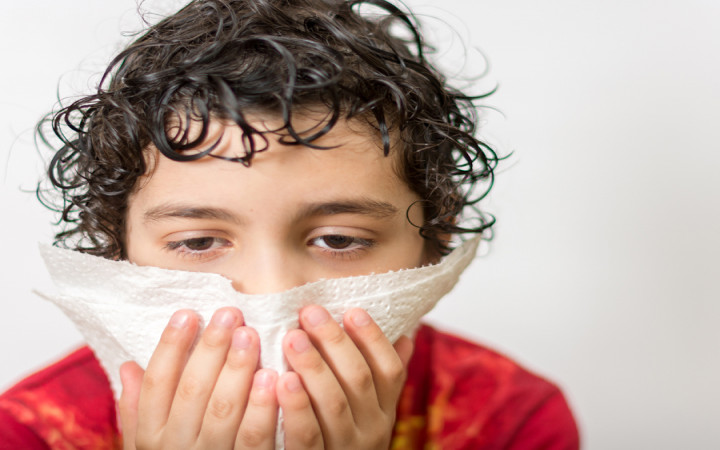Today’s Wonder of the Day was inspired by Legacy from Cookeville, TN. Legacy Wonders, “What are Sinus Cavities?” Thanks for WONDERing with us, Legacy!
Your head aches. You're congested. You sneeze and cough frequently. What's going on? Is it a common cold? Maybe…but if these symptoms stick around for a couple of weeks or longer, you might be having trouble with your sinuses.
From time to time, you've probably heard adults refer to a sinus headache, sinus congestion, or a sinus infection. What are these sinuses they're talking about?
Your sinuses are pockets of air located in the bones of your head and face. Since they're filled with moist air, they're sometimes referred to as sinus cavities.
Each person has four pairs of sinuses. The frontal sinuses are behind your eyebrows, the maxillary sinuses are inside the cheekbones, the ethmoid sinuses are between your eyes, and the sphenoid sinuses are behind the ethmoid sinuses.
Why do we have sinuses? Scientists don't know for sure, but many believe they prevent your head from being too heavy. If those pockets of air were filled with bone, your head would weigh much more than it does now! Sinuses also help to determine the depth and tone of your voice.
Your sinuses contain thin layers of moist tissue called mucous membranes. These membranes help to moisten the air you breathe. They also make mucus, a sticky substance that helps to trap dust and germs.
Microscopic hairs called cilia line the mucous membranes. Cilia move back and forth to clear mucus out of the sinuses. We never notice what our sinuses are doing until something goes wrong with the process.
Viruses, bacteria, and even allergies can cause problems in your sinuses. They can cause mucus production to increase. They can cause mucous membranes to become irritated and swollen. They can also damage cilia, so that mucus does not drain properly.
When these things occur, you will likely end up with sinusitis. Sinusitis is an infection of the sinuses characterized by inflammation of the sinus cavities. Doctors estimate that over 37 million Americans develop sinusitis every year.
Sinusitis symptoms, such as fever, congestion, nasal discharge, coughing, and headache, often resemble the common cold. Unlike the common cold, however, sinusitis will linger on more than a couple of weeks.
Although sinusitis symptoms can be uncomfortable and , they're treatable once diagnosed. If a doctor suspects you have bacterial sinusitis, then you'll probably be given an antibiotic that'll help you feel much better in a few days. Other symptoms can be treated with over-the-counter decongestants, antihistamines, and nasal sprays.





